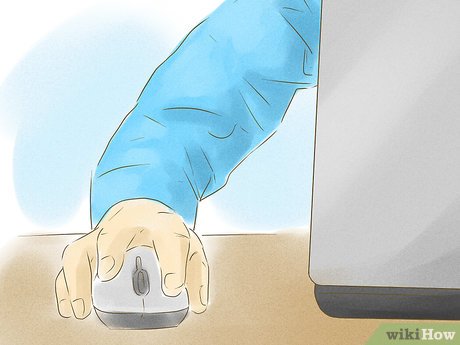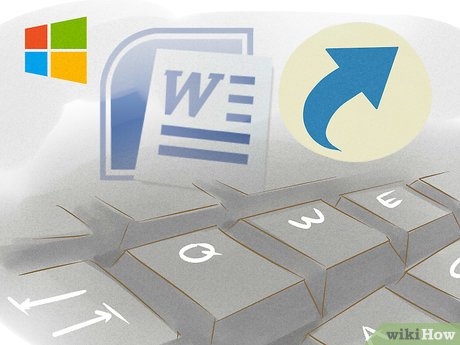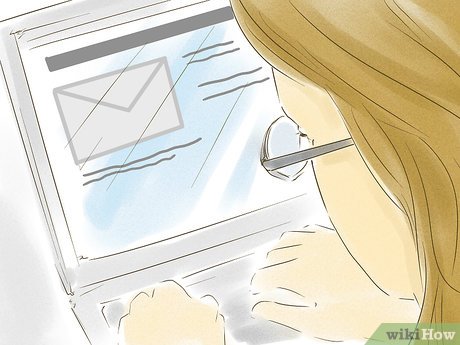How to End a Software Licensing Agreement
Part 1 of 4:
Accepting EULAs
-
 Download or purchase software. EULAs are most commonly found when you purchase software online for use on computers, phones, and tablets. As soon as you make the purchase and download the software for the first time, a screen will generally pop up asking you to read and agree to specific terms of use.
Download or purchase software. EULAs are most commonly found when you purchase software online for use on computers, phones, and tablets. As soon as you make the purchase and download the software for the first time, a screen will generally pop up asking you to read and agree to specific terms of use. -
 Read the EULA. When the EULA pops up on your screen, be sure you read it carefully. These agreements significantly affect your legal rights and your ability to use and modify the software. These EULAs are often long and written using complex legalese. However, you should take the time necessary to understand what you are agreeing to.
Read the EULA. When the EULA pops up on your screen, be sure you read it carefully. These agreements significantly affect your legal rights and your ability to use and modify the software. These EULAs are often long and written using complex legalese. However, you should take the time necessary to understand what you are agreeing to. -
 Indicate your acceptance. When you are done reading the EULA, you might choose to accept the terms and use the software. Your indication of acceptance will take different forms depending on how you got the software. For example, if you bought a software CD from a store, you might agree to the EULA as soon as you purchase the product. You might also be deemed to have agreed to the EULA as soon as you install the program onto your computer, phone, or tablet. If you purchase the software online and simply download it to your device, you might accept the EULA as soon as you use the program the first time. You might have to click an "I accept" button before you will be allowed to use the software.[1]
Indicate your acceptance. When you are done reading the EULA, you might choose to accept the terms and use the software. Your indication of acceptance will take different forms depending on how you got the software. For example, if you bought a software CD from a store, you might agree to the EULA as soon as you purchase the product. You might also be deemed to have agreed to the EULA as soon as you install the program onto your computer, phone, or tablet. If you purchase the software online and simply download it to your device, you might accept the EULA as soon as you use the program the first time. You might have to click an "I accept" button before you will be allowed to use the software.[1]
Part 2 of 4:
Canceling EULAs
-
 Return the software. Once you have accepted the EULA, backing out and ending it may prove to be difficult. Most people do not think about these things and will simply stop using the software, even though they may still be bound by the EULA terms. One option for ending a software licensing agreement is to return the software to the provider along with a note indicating that you no longer agree to be bound by the EULA.[2]
Return the software. Once you have accepted the EULA, backing out and ending it may prove to be difficult. Most people do not think about these things and will simply stop using the software, even though they may still be bound by the EULA terms. One option for ending a software licensing agreement is to return the software to the provider along with a note indicating that you no longer agree to be bound by the EULA.[2]- However, once you send the software back to the provider, you will no longer be able to use it.
-
 Click 'I do not accept' before you ever use the software. Another way to end a software licensing agreement is to never enter into one in the first place. For example, when your screen asks you to "accept" the terms of the agreement before using the software, instead of clicking "accept", click "I do not accept." When you do this, you will not be able to use the software but you will also not enter into the EULA.[3]
Click 'I do not accept' before you ever use the software. Another way to end a software licensing agreement is to never enter into one in the first place. For example, when your screen asks you to "accept" the terms of the agreement before using the software, instead of clicking "accept", click "I do not accept." When you do this, you will not be able to use the software but you will also not enter into the EULA.[3] -
 Uninstall the software. If the software has been installed on your computer, you have most likely agreed to the terms of a EULA without even recognizing it. If you want to end the agreement, you will usually be able to do so by uninstalling the installed software. As soon as the software is uninstalled, you will no longer be able to use it but you will not be bound by the EULA.
Uninstall the software. If the software has been installed on your computer, you have most likely agreed to the terms of a EULA without even recognizing it. If you want to end the agreement, you will usually be able to do so by uninstalling the installed software. As soon as the software is uninstalled, you will no longer be able to use it but you will not be bound by the EULA.
Part 3 of 4:
Terminating Individualized Software Licensing Agreements
-
 Hire a lawyer. If you are a company or individual that has entered into an individualized software licensing agreement, you should hire a lawyer before you terminate that agreement. A software licensing agreement is a contract and as such, there are possible negative consequences if you terminate it improperly.[4] To hire a lawyer, contact your state bar association's lawyer referral service. When you contact the service, you will answer a few general questions about your legal issue and you will then be put in touch with multiple qualified attorneys.
Hire a lawyer. If you are a company or individual that has entered into an individualized software licensing agreement, you should hire a lawyer before you terminate that agreement. A software licensing agreement is a contract and as such, there are possible negative consequences if you terminate it improperly.[4] To hire a lawyer, contact your state bar association's lawyer referral service. When you contact the service, you will answer a few general questions about your legal issue and you will then be put in touch with multiple qualified attorneys.- When you are searching, be sure you look for an attorney specializing in contract law and/or intellectual property law.
-
 Read the terms of your agreement. To start the termination process, you will first need to understand your software licensing agreement. Within the agreement will be several provisions relating to what you can and cannot do with the licensed software. If any one of these provisions is breached by you or the other party, you may be able to terminate the contract.
Read the terms of your agreement. To start the termination process, you will first need to understand your software licensing agreement. Within the agreement will be several provisions relating to what you can and cannot do with the licensed software. If any one of these provisions is breached by you or the other party, you may be able to terminate the contract.- For example, if your contract stated that your license fee would be $1,000 per year, but the other party is charging you $2,500 for 2016, you may be able to terminate the contract.
-
 Find the termination clause. Almost every individualized software licensing agreement will contain a specific provision dealing with termination. While every agreement is different, you should look for keywords such as "term", "termination", and "termination rights." These words will give you clues about which provision in your contract deals with termination.[5][6]
Find the termination clause. Almost every individualized software licensing agreement will contain a specific provision dealing with termination. While every agreement is different, you should look for keywords such as "term", "termination", and "termination rights." These words will give you clues about which provision in your contract deals with termination.[5][6] -
 Follow the agreement. Once you find the termination clause of your software licensing agreement, you will need to follow it exactly in order to terminate the agreement correctly. Every termination clause is different and most contracts will require you to comply with several provisions if you want to terminate the agreement.
Follow the agreement. Once you find the termination clause of your software licensing agreement, you will need to follow it exactly in order to terminate the agreement correctly. Every termination clause is different and most contracts will require you to comply with several provisions if you want to terminate the agreement.- For example, some termination clauses state that the agreement will automatically terminate after a certain period of time. Other termination clauses allow either party to terminate the agreement when the other party defaults on any of the terms or conditions agreed upon in the contract. Some termination clauses even allow either party to terminate the agreement so long as proper notice is given (regardless of whether someone is at fault).
- Most termination clauses will include a requirement that, upon termination, you must certify to the other party that you are discontinuing the use of the licensed software. You will usually be required to make this certification soon after you terminate the agreement.[7][8]
- Therefore, whenever you choose to end a software licensing agreement, you will no longer be able to use that software.
Part 4 of 4:
Understanding Licensing Agreements
-
 Think about their purpose. Licensing agreements are entered into in order to allow one person (licensee) to use another's software (licensor). In exchange for the ability to use the licensor's software, the licensee will be restricted in how and when it can be used (and will also pay to use the software).[9] It is imperative for software creators to have these agreements in order to protect their intellectual property (i.e., the software code, the images, the purposes of the software, etc.).
Think about their purpose. Licensing agreements are entered into in order to allow one person (licensee) to use another's software (licensor). In exchange for the ability to use the licensor's software, the licensee will be restricted in how and when it can be used (and will also pay to use the software).[9] It is imperative for software creators to have these agreements in order to protect their intellectual property (i.e., the software code, the images, the purposes of the software, etc.).- In most cases, if you want to use someone's software, you will have to agree to the terms of these agreements. If you do not, the licensor will usually not allow you to use the software.
-
 Analyze the different forms of agreement. Software licensing agreements come in many forms and will differ depending on who you are, who the licensor is, and how you are licensing the software. The most common forms of software licensing agreements are EULAs and individual contracts.
Analyze the different forms of agreement. Software licensing agreements come in many forms and will differ depending on who you are, who the licensor is, and how you are licensing the software. The most common forms of software licensing agreements are EULAs and individual contracts.- EULAs are seen every day whenever you download and install software onto your computer, television, phone, or tablet. It is a contract between the software application author and you, the end user. When you install software, you will be asked to "accept" certain terms before you can use the software. Once you click "accept", open the shrink wrap, break the seal, or simply use the software, you are agreeing to abide by the EULA terms and conditions.[10]
- Individual contracts are generally used when a corporation or some other organization enters into an agreement to license a specific software throughout all of their offices. These agreements are more tailored to the specific needs of the corporation. For example, the corporation might negotiate to be able to make copies of the software (which would usually not be allowed in most EULAs) and the licensor might negotiate to limit the licensee's ability to sublicense or assign the license.[11]
-
 Know common terms. Software licensing agreements tend to have a set of common terms you will see over and over. These common terms are the core of these agreements and often limit your uses of the software. Examples of common terms include:[12]
Know common terms. Software licensing agreements tend to have a set of common terms you will see over and over. These common terms are the core of these agreements and often limit your uses of the software. Examples of common terms include:[12]- "Do not criticize this product publicly." These terms forbid you from comparing the product with other similar products in what are known as "benchmark tests." Benchmark tests are used to measure the performance of software in a controlled environment. EULA terms forbidding these actions might say: "You may not, without Software Author's prior written approval, disclose to any third party the results of any benchmark test."
- "Using this product means you will be monitored." These terms often allow software providers to access your computer to automatically make updates. The software provider does this by making your computer contact a third party (i.e., not even the software provider) without ever notifying you. Some licensing agreements will even make subscription renewal automatic. If this is the case, you agree to let the software provider charge your credit card whenever your subscription runs out (at a fee that could change any time).
- "Do not reverse-engineer this product." Most licensing agreements will forbid you from taking a piece of software apart in order to see how it works. A lot of inventors and people who want to customize their user experience will reverse-engineer products in order to make other products better. An example of these terms states: "You may not reverse engineer, decompile, or disassemble the Software."
- "Software providers will not be responsible if their software messes up your computer." Almost every software licensing agreement includes a disclaimer of liability. When you accept these terms, you are immediately limited in the types of action you can take against faulty software and the companies that create and provide them. An example of such a term states: "Except for any refund elected by the Software Provider, you are not entitled to any damages, including but not limited to consequential damages, if the Software does not meet the Software Provider's Limited Warranty, and, to the maximum extent allowed by applicable law, even if any remedy fails of its essential purpose."
-
 Consider their problems. A lot of software licensing agreements include terms that are vague, unclear, and even outright illegal. In addition, when you buy a software CD from a store, you are usually agreeing to the software licensing agreement before you ever get a chance to look at it. Other companies bury their licensing agreements and make them so hard to find people like you don't even look for them.
Consider their problems. A lot of software licensing agreements include terms that are vague, unclear, and even outright illegal. In addition, when you buy a software CD from a store, you are usually agreeing to the software licensing agreement before you ever get a chance to look at it. Other companies bury their licensing agreements and make them so hard to find people like you don't even look for them.- For example, provisions limiting your ability to reverse-engineer software run afoul of the "fair use" doctrine in copyright law. Under that law, you are able to reverse-engineer products to create another, non-infringing product.
- Another example is provisions that limit your ability to criticize and analyze the producer's software. These terms most likely limit your free speech rights.[13]
-
 Advocate for a better system. If you are concerned with the ultimatum that you either agree to licensing agreements in order to use software products or do not use them at all, you can advocate for change. Write your representatives and ask that they introduce federal consumer protection and copyright laws. Ask that these new laws prohibit certain terms from being included in software licensing agreements.[14]
Advocate for a better system. If you are concerned with the ultimatum that you either agree to licensing agreements in order to use software products or do not use them at all, you can advocate for change. Write your representatives and ask that they introduce federal consumer protection and copyright laws. Ask that these new laws prohibit certain terms from being included in software licensing agreements.[14]- Letters to your representatives can be incredibly persuasive. Considering you elect these individuals, if they fail to listen to your concerns, you may not vote for them again and they may not get reelected.
Share by
Lesley Montoya
Update 05 March 2020














